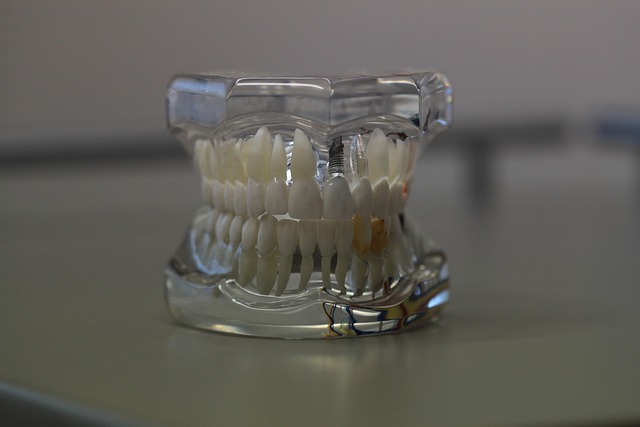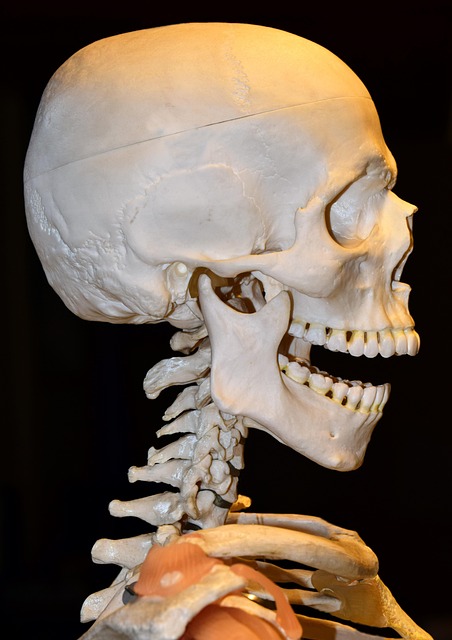Transform your smile and regain your confidence with Denture Solutions Leamington. We offer the best…….
Category: Denture Clinic Leamington
Shreve Denture Clinic\\\’s Leamington location is dedicated to providing high-quality, custom-crafted dentures and comprehensive denture services to the Leamington community. We focus on restoring smiles, comfort, and confidence with personalized care.
Denture Clinic Leamington: A Comprehensive Overview
Introduction
Welcome to an in-depth exploration of the world of denture clinics, specifically focusing on Leamington, a city that has emerged as a prominent hub for dental care. This article aims to unravel the intricacies of denture clinics, their global impact, and the unique role played by Leamington in shaping oral health solutions. By delving into various aspects, from economic implications to technological innovations, we will provide readers with a comprehensive understanding of this dynamic field.
Understanding Denture Clinic Leamington
Definition: A denture clinic is a specialized dental facility dedicated to providing services related to dentures, a replacement for missing teeth. These clinics offer a range of treatments, including denture fittings, adjustments, repairs, and guidance on aftercare.
Core Components:
- Consultation and Assessment: Denture specialists begin by evaluating patients’ oral health, discussing their medical history, and designing a personalized treatment plan.
- Denture Fittings: This involves taking precise measurements and impressions of the patient’s mouth to create customized dentures that fit comfortably.
- Materials and Techniques: Modern denture clinics employ various materials like acrylic resins, metal alloys, and advanced computer-aided design (CAD) technology for precise crafting.
- Aftercare and Support: Educating patients on cleaning, maintaining, and replacing dentures is an essential aspect of patient care.
Historical Context: The practice of denture making dates back centuries, but it has evolved significantly. In the past, dentures were often made from animal bones or teeth and required frequent adjustments. Modern denture clinics have revolutionized this process, ensuring more natural-looking, comfortable, and durable replacements for missing teeth.
Significance: Denture clinics play a vital role in oral healthcare by providing affordable and accessible solutions for people with tooth loss. They cater to individuals of all ages, from the elderly who may have experienced dental decay or extraction due to age or illness, to younger patients affected by accidents or congenital conditions.
Global Impact and Trends
The influence of denture clinics is not confined to Leamington; it reverberates across borders, shaping oral health care worldwide. Here’s a global perspective:
- Growing Demand: With increasing life expectancies and the rise in dental diseases, the global demand for dentures is rising. The World Health Organization (WHO) estimates that over 3.5 billion people worldwide lack access to oral health services, making denture clinics an essential component of oral healthcare accessibility.
- Regional Variations: Different countries have varying levels of denture clinic development. Developed nations often have more advanced dental care infrastructure, while developing regions may struggle with limited resources and awareness. For instance, in some Asian and African countries, traditional remedies for tooth loss are still prevalent, presenting unique challenges for denture clinics aiming to provide education and services.
- International Collaboration: Global health initiatives focus on sharing best practices and technologies related to dentures. Organizations like the International Dental Federation (FDI) facilitate knowledge exchange, ensuring that denture clinic professionals worldwide stay updated with the latest advancements.
Economic Considerations
The economic landscape surrounding denture clinics is multifaceted, impacting both patients and healthcare systems.
- Market Dynamics: The global denture market is characterized by intense competition and rapid innovation. Companies specialize in specific materials, designs, and manufacturing processes, offering a wide range of products to meet diverse patient needs. According to a 2022 report by Grand View Research, the global denture market size was valued at USD 14.5 billion in 2021 and is projected to grow at a CAGR of 6.7% from 2022 to 2030.
- Investment Patterns: Private investors and dental care companies are drawn to the potential of denture clinics due to their relatively low startup costs compared to other medical facilities. This has led to an increase in specialized dental practices, especially in urban areas.
- Cost-Effectiveness: Denture clinics offer a cost-effective solution for tooth loss treatment. Unlike implants or bridges, dentures are more affordable, making them accessible to a broader population. However, the economic impact goes beyond prices; denture services contribute to reducing the financial burden on healthcare systems by addressing dental issues without complex procedures.
Technological Advancements
Technology has been a game-changer in the denture clinic space, enhancing precision, comfort, and aesthetics.
- Computer-Aided Design (CAD): CAD technology allows dentists to create highly accurate digital models of patients’ mouths, streamlining the design process. This results in better-fitting dentures with improved aesthetics.
- 3D Printing: The use of 3D printing in denture manufacturing has gained traction. It enables rapid prototyping and customized designs, allowing for more precise and personalized dentures.
- Implant Integration: Advanced dental implants that fuse with jawbone provide a sturdy base for dentures, enhancing stability and longevity. This technology combines with CAD/CAM systems to offer patients durable and natural-looking solutions.
- Digital Imaging and Scanning: Digital X-rays and intraoral scanners replace traditional plaster molds, providing faster, more efficient, and accurate impressions.
Policy and Regulation
The operation of denture clinics is guided by various policies and regulations that vary across jurisdictions.
- Licensing and Registration: Denture specialists must obtain licenses and registrations from local dental boards to practice legally. These regulations ensure that practitioners meet specific education, training, and experience requirements.
- Standard Operating Procedures (SOPs): Dental clinics are subject to SOPs that cover infection control, patient consent, record-keeping, and ethical practices. Adherence to these standards maintains patient safety and ensures the quality of care.
- Pricing and Insurance: Policies regarding pricing transparency and insurance coverage for denture services vary globally. Some countries have standardized pricing structures, while others rely on private insurance plans or public healthcare systems.
- International Cooperation: Global health organizations collaborate with governments to develop policies that facilitate access to dental care, including denture services, especially in underserved communities.
Challenges and Criticisms
Despite its many benefits, the denture clinic industry faces several challenges and criticisms.
- Aesthetic Concerns: One of the primary criticisms is related to aesthetics. While modern dentures are more natural-looking than ever, some patients still express concerns about their appearance, especially when compared to natural teeth. Addressing these fears through education and showcasing successful cases can help.
- Stigma and Attitudes: There persists a social stigma associated with tooth loss, leading some individuals to avoid denture clinics. Raising awareness and promoting positive narratives about dentures can help dispel myths and encourage people to seek necessary care.
- Access in Rural Areas: In many developing countries, access to quality denture services is limited in rural regions due to a lack of infrastructure and specialized professionals. Teledentistry and mobile dental units are emerging solutions to bridge this gap.
- Regulatory Compliance: Keeping up with evolving regulations can be challenging for small clinics. Regular training and updates on legal requirements are essential to ensure compliance.
Case Studies
Case Study 1: The Smile Project, India
In a rural village in India, a mobile denture clinic known as “The Smile Project” was launched to address the lack of dental care. This initiative used a van equipped with basic dental equipment and a computer-aided design system. Local dentists provided services at a subsidized rate, reaching hundreds of individuals who previously had no access to denture care. The project’s success lay in its ability to offer affordable, accessible, and personalized services, improving the oral health of the community.
Case Study 2: Digital Denture Revolution, United States
A chain of denture clinics in the US adopted a digital-first approach, utilizing advanced CAD/CAM technology for precise denture design and manufacturing. This innovation reduced treatment times and improved patient satisfaction. By implementing efficient digital systems, the clinics could also manage larger patient volumes while maintaining quality care. This case highlights how technology can enhance clinic operations and patient outcomes.
Case Study 3: Community-Based Dental Care, Australia
The Australian government partnered with local dental practices to establish community denture clinics in underprivileged areas. These clinics offered not only denture fitting but also educational workshops on oral hygiene and healthy eating. This holistic approach improved not only individual oral health but also community well-being, demonstrating the power of integrated dental care.
Future Prospects
The future of denture clinics looks promising, with several growth areas and emerging trends shaping the industry:
- Personalized Medicine: The integration of advanced technologies like artificial intelligence (AI) and genomics will enable more personalized denture solutions. AI can analyze vast patient data to predict outcomes and design customized treatments.
- Teledentistry: Remote dental care is expected to grow, allowing patients in remote areas to consult with specialists via video conferencing. This trend aligns with the global push for accessible healthcare.
- Biomaterials: Research into biodegradable and biocompatible materials will lead to innovative denture designs that mimic natural teeth more closely.
- Digital Education: Online resources and virtual consultations will play a larger role in patient education, especially for preventive care and maintaining dentures.
- Integrated Dental Care: Denture clinics are likely to collaborate more closely with other dental specialties, offering comprehensive oral healthcare services under one roof.
Conclusion
Denture clinic Leamington is not just a local phenomenon; it represents a vital component of global oral health care. From its historical roots to modern technological advancements, these clinics have transformed the way we address tooth loss. The economic impact, international collaborations, and innovative solutions they offer demonstrate their significance. By overcoming challenges and embracing emerging trends, denture clinics continue to contribute to better oral health outcomes for people worldwide.
FAQ Section
Q: How do I know if I need dentures?
A: If you have lost several teeth due to decay, disease, or injury, dentures might be an option. Consult a dental professional who can evaluate your mouth and discuss suitable treatment options.
Q: Are dentures comfortable?
A: Modern dentures are designed for comfort and fit well when properly fitted by a specialist. Proper care and regular adjustments ensure continued comfort.
Q: How long do dentures last?
A: With proper care, dentures can last 10-25 years or more. Regular check-ups with your dentist will help maintain their longevity.
Q: Are denture clinics expensive?
A: The cost varies depending on the clinic and treatment complexity. Many clinics offer affordable options, and some insurance plans cover denture services. Financial assistance programs are also available in many countries for those who need it.
Q: Can I get dentures if I have poor oral health?
A: In most cases, yes. Denture specialists can address various oral health issues to ensure you’re a suitable candidate for dentures. They will provide guidance on improving your oral health as part of the treatment process.
Transform Your Smile, Save Big: TopDenture Adjustments in Leamington
Looking for dentures in Leamington? Investing in high-quality adjustments from experienced professio…….
Transform Your Smile, Save Big: Affordable Full Dentures at Shreve Clinic Leamington
"Experience the transformative power of a perfect smile with Shreve Denture Clinic, Leamington&…….
Transform Your Smile, Save with Top Denturists in Leamington
Need dentures in Leamington? Expert Denturists is your solution. We offer a wide range of high-quali…….
Transform Your Smile, Save with Precision Dentures in Leamington – Free Consultation!
Looking for top-quality dentures in Leamington that won't break the bank? Precision dentures of…….
Transform Your Smile, Save Big: Best Denture Solutions in Leamington from $99
Looking for dentures that fit your budget and transform your smile? Denture Consult Leamington offer…….
Transform Your Smile, Save Big: Implant Dentures in Leamington
Tired of the hassle and cost of traditional denture repairs in Leamington? Implant dentures offer a…….
Transform Your Smile, Save Big: Leamington’s Top Denture Repair Experts
In need of reliable denture repair in Leamington? Restore Smile Leamington is your answer. We offer…….
Transform Your Smile: Affordable Partial Dentures in Leamington – Free Consultation!
Looking for an affordable way to restore your smile in Leamington? New Dentures Leamington is the pe…….
Shreve Denture Clinic: Revive Your Smile, Save Big on Repairs
At Shreve Denture Clinic, we prioritize your smile's longevity and your financial well-being. O…….










